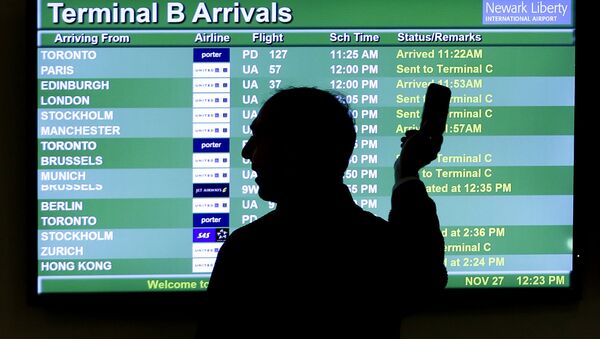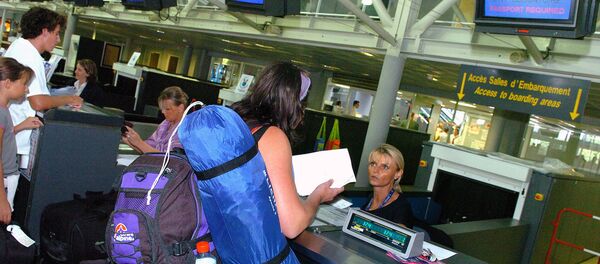The US Department of Homeland Security (DHS) is assessing the need to expand its current inflight travel ban on devices larger than cell phones to include flights originating in cities beyond Europe, North Africa and the Middle East, as passengers, airlines, and security experts push back at the move.
According to Reuters, a senior US official affirmed that, while DHS head John Kelly is "assessing next steps," there is no timeline for Washington to widen what he referred to as a "likely" increase in travel ban locations beyond Europe.
Claiming that the agency is "well aware" of the concerns of airlines, airports, governments and passengers, DHS spokesman David Lapin stated on Tuesday, however, that "It's our primary responsibility to consider the safety of the traveling public."
Lapin suggested that those new locations would be "not solely from Europe," but did not offer a precise list, according to the Japan Times.
Imposed in March, the US ban on electronic devices larger than cellphones is in effect on flights originating in Amman, Jordan; Kuwait City; Cairo; Istanbul; Jeddah and Riyadh, Saudi Arabia; Casablanca, Morocco; Doha, Qatar, and cities in the United Arab Emirates.
The UK has imposed a similar ban on flights originating from Turkey, Lebanon, Jordan, Egypt, Tunisia and Saudi Arabia.
Australia is reported to be considering a comparable ban.
The Airports Council International (ACI) trade association released a statement claiming that the new European ban will likely affect 3,684 flights each week arriving in the US from 59 airports on the continent.
"We are concerned about the consequences that such a ban would have on demand for trans-Atlantic air travel," said an ACI spokesperson.
"The fact that one of the affected Gulf airlines has downsized its operations to the US is indeed worrying — and points to a wider and lasting economic impact," they added.
Experts estimate that up to 90 percent of passengers routinely use the banned devices inflight, while airlines with service to the US observe that the ban will decrease its lucrative business-class travel.



